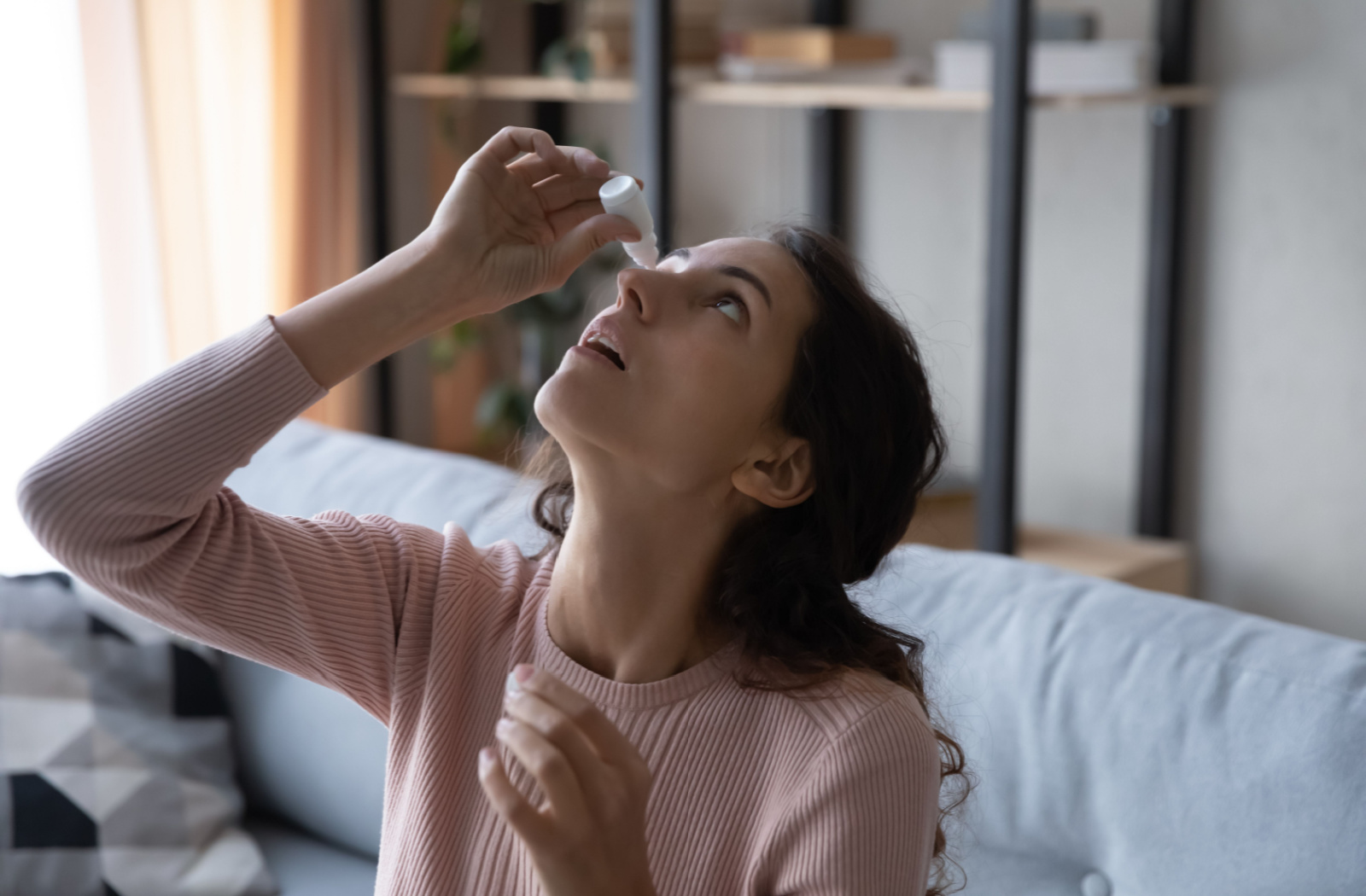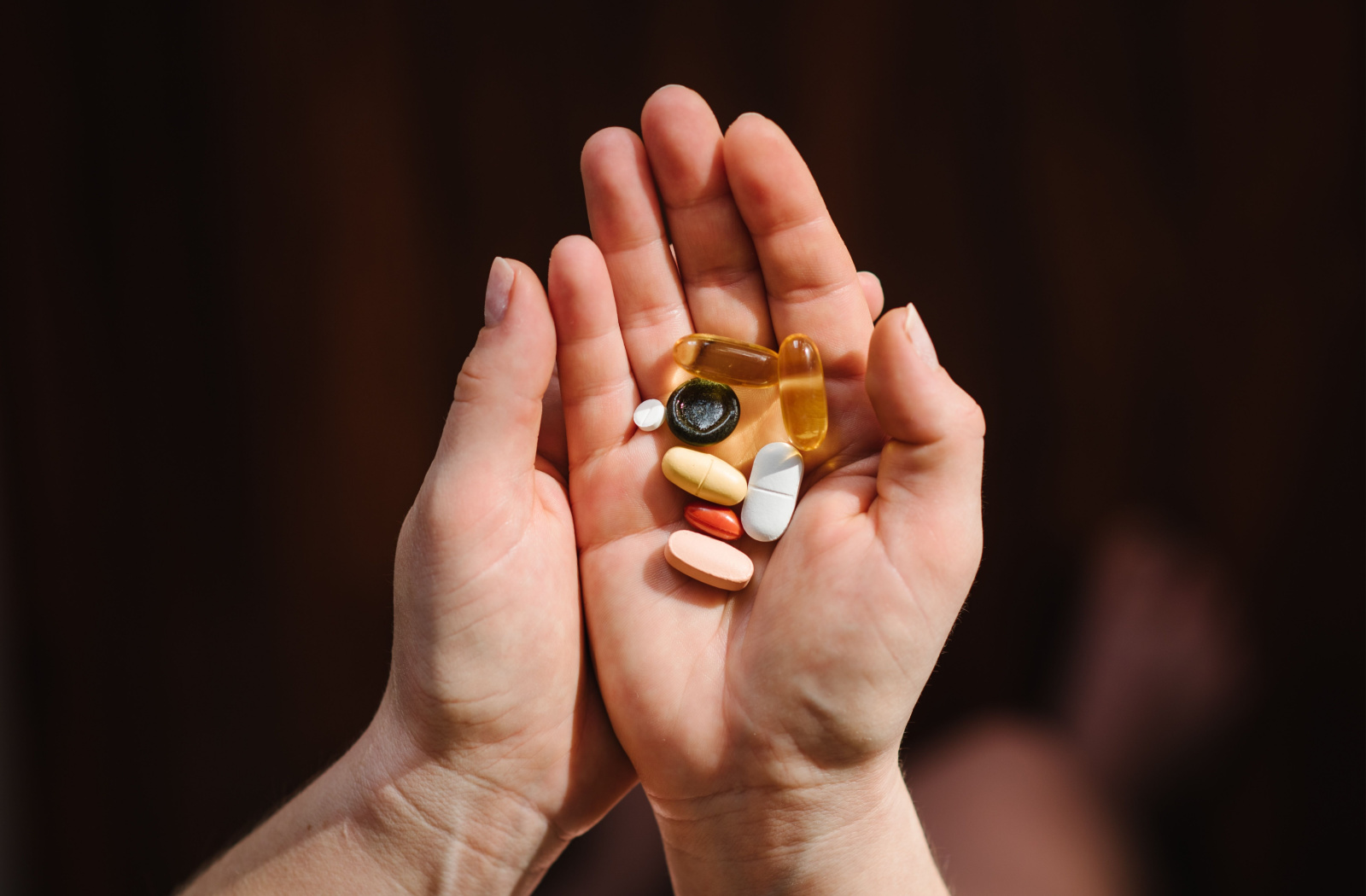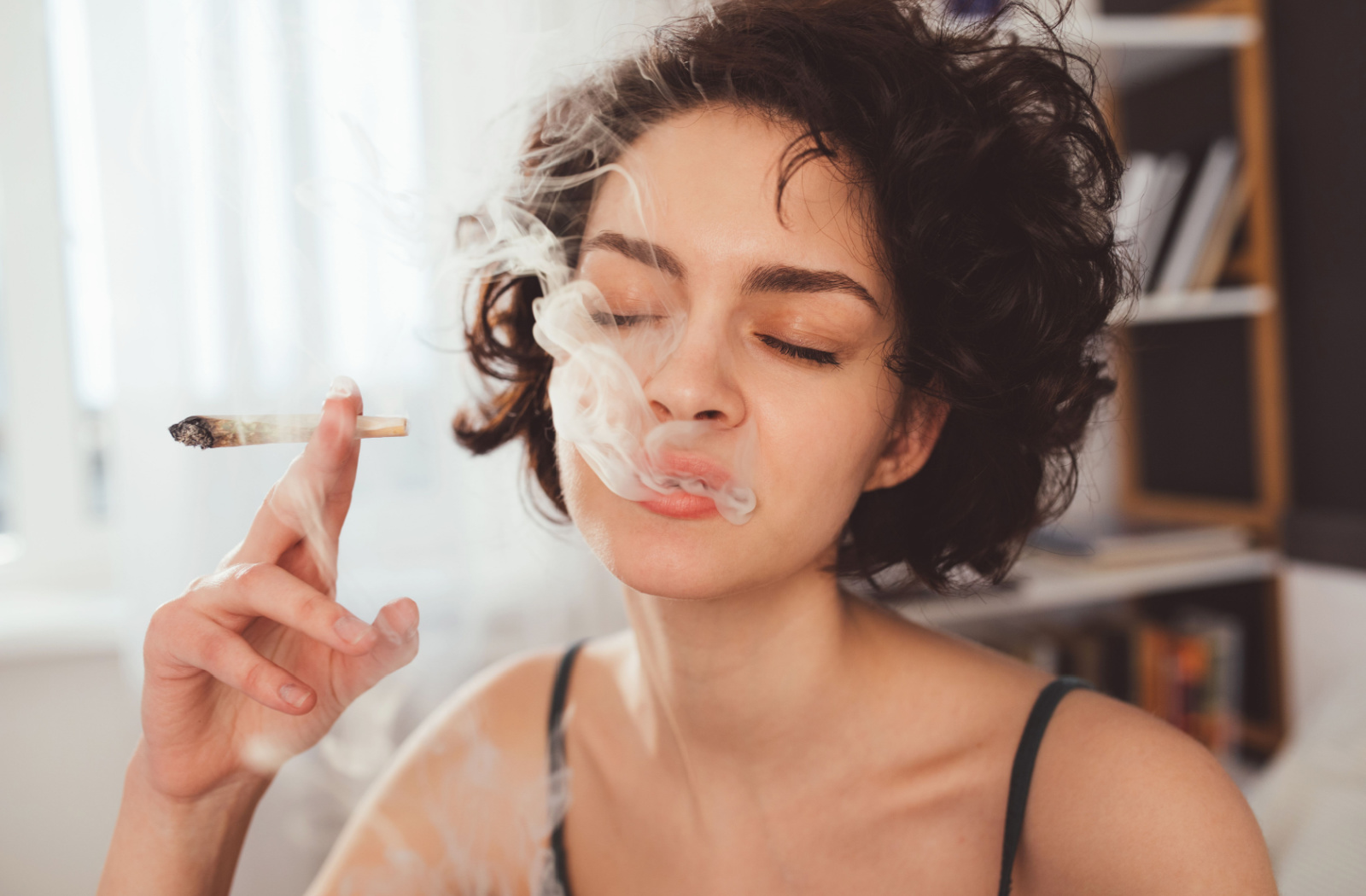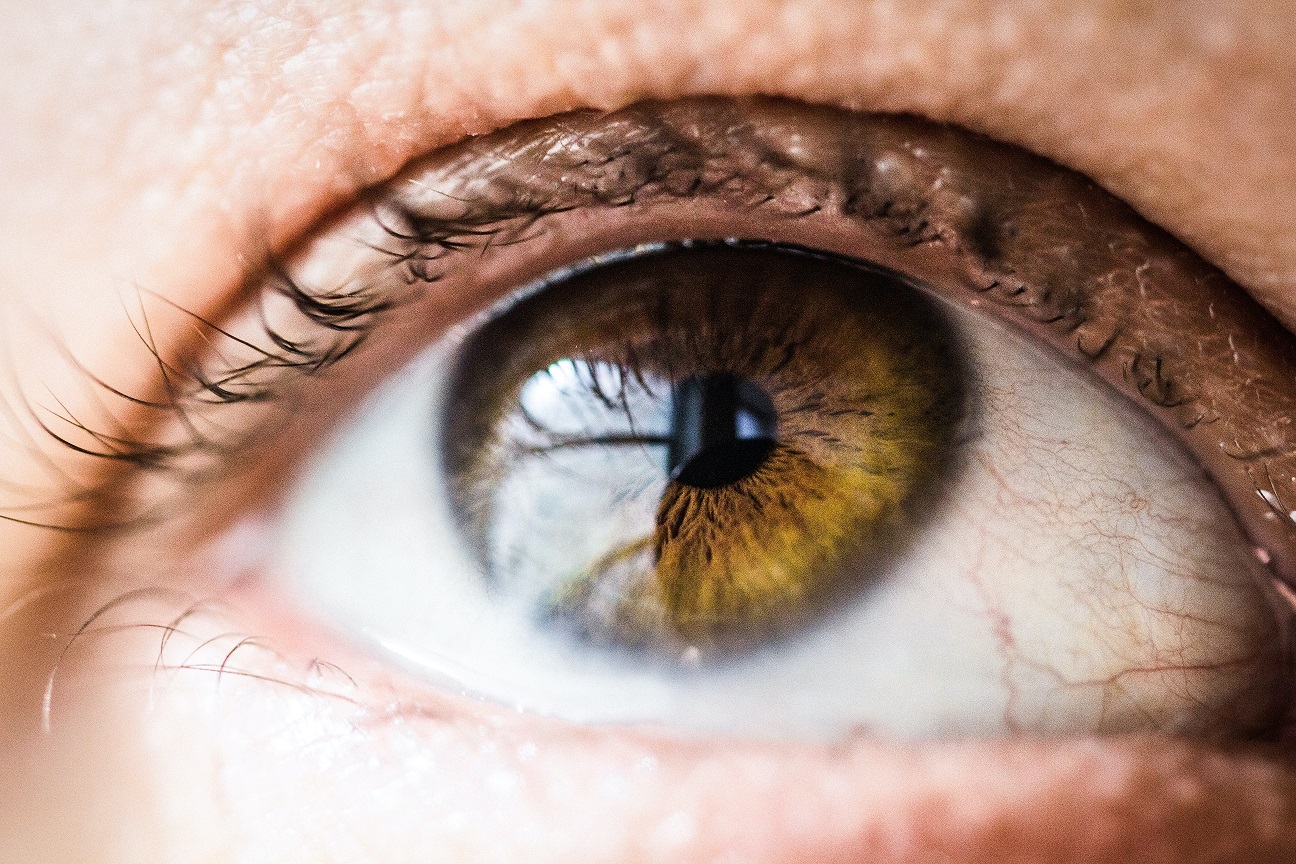If you suffer from dry eyes, you know how uncomfortable life can be when your eyes feel irritated, gritty, and scratchy. When you wake up in the morning, and the first thing you feel is your dry eyes, it can set the wrong tone for your day.
You can use eye drops before bed and throughout the day to help keep your eyes moist and prevent discomfort, but you should also always follow your eye doctor’s instructions for eye drop use. Before you use any eye drops, it’s important to schedule an appointment for a dry eye exam to get personalized recommendations for eye drop use based on your individual health and lifestyle.
Eye Drops for Dry Eyes
Using eye drops can be a great way to keep your eyes moist and comfortable. Eye drops that contain lubricants are designed to work like natural tears and provide quick relief for dry eyes.
When you sleep, your eyes stay closed, and you may not need to add artificial moisture. However, if you are susceptible to dry eyes, you may benefit from using eye drops before bed.
Applying eye drops before bed can help to soothe your eyes and provide moisture throughout the night, helping you to wake up refreshed and with clear vision. Using thicker ointments, as opposed to liquid drops, may be more nourishing for your dry eyes upon waking up.
Preservatives vs. Preservative-Free Eye Drops
Eye drops are available in preservative and preservative-free formulas. Preservatives help prevent the growth of bacteria, but they can irritate your delicate eyes.
Preservative-free drops are a standard recommendation for those with dry eyes. Since they have no preservatives, they last only a short time after being opened but can be used repeatedly throughout the day.
Waking Up with Dry Eyes
If you’re waking up with dry eyes frequently, your symptoms may be caused by several factors, including:
- Nocturnal lagophthalmos
- Insufficient tear production
- Tears that evaporate too quickly
Nocturnal Lagophthalmos
Nocturnal lagophthalmos is a condition where your eyelids do not fully close during sleep. This can cause your eyes to become dry and irritated due to exposure to the room’s dry air or other allergens present.
Additionally, nocturnal lagophthalmos can increase tear evaporation, which can trigger dry eye symptoms. If you are experiencing this condition, try using ointment before you fall asleep to help lock in moisture.
Insufficient Tear Production
When your eyes don’t make enough tears to stay hydrated, you may develop aqueous-deficient dry eye, which can be caused by:
- Sjögren’s syndrome
- Other autoimmune diseases
- Hormonal changes
- Blepharitis or seborrheic dermatitis
- Dry environments
- Vitamin A or omega-3 deficiencies
Tears that Evaporate Too Quickly
When your tears evaporate too quickly, you may develop evaporative dry eye—the most common form of dry eye. Evaporative dry eye can occur when your oil-producing meibomian glands become blocked and aren’t able to provide enough oil to support your tear film, resulting in meibomian gland dysfunction (MGD).
Meibomian gland dysfunction can be worsened by:
- Skin conditions
- Extended contact lens wear
- Dry environments
- Antihistamines, antidepressants, retinoids, birth control, and hormone therapy
- Vitamin A deficiency
- Eye surgery
Contact lens wearers, people living in dry environments, or those with other ocular disorders might experience MGD more frequently. Adjusting your diet, staying hydrated, and practicing good screen habits may help improve the quality of your tears.
Your optometrist may recommend preservative-free eye drops, prescription eye drops, or other treatments to restore healthy tear production.
Habits to Help Relieve Dry Eye
Using eye drops and an ointment can help you get relief from dry eyes, but you will experience more dry eye relief by adopting certain habits and making lifestyle adjustments, including the following:
- Use a humidifier in your bedroom
- Avoid air conditioners, fans, and forced heating systems
- Use a warm compress on your eyes
- Take frequent breaks from your computer and phone screens
- In-office treatments such as intense pulsed light, radiofrequency and/or LipiFlow
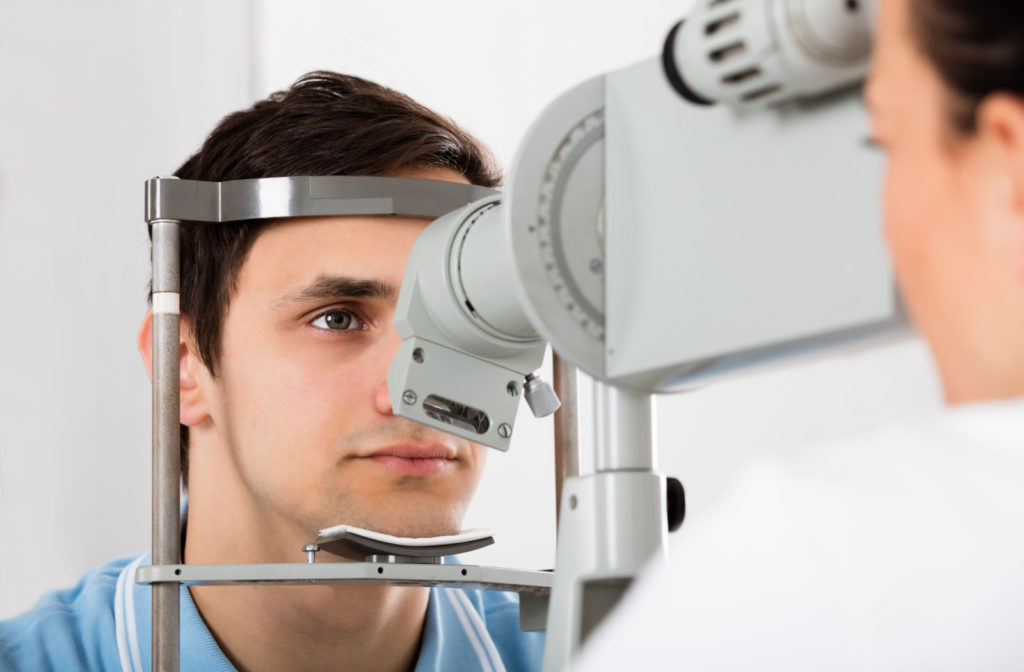
Defeat Dry Eye Symptoms
Applying eye drops throughout the day and before bed can help relieve dry eyes. Whether you should use eye drops or not and how often you should use them can depend on your individual needs. Visit an optometrist near you to get an eye exam and a dry eye assessment—and discuss the right treatment and management techniques for your dry eye needs.



